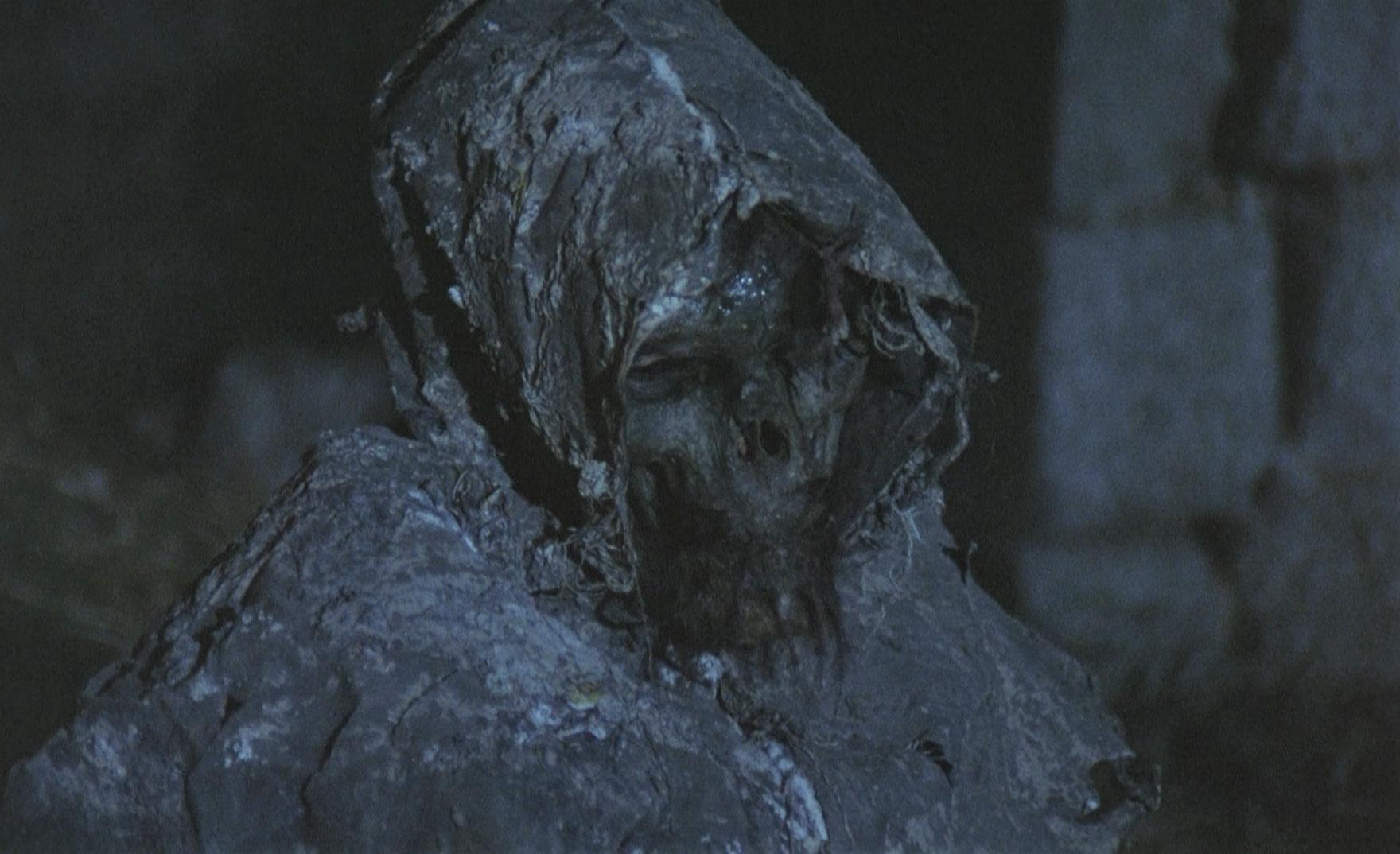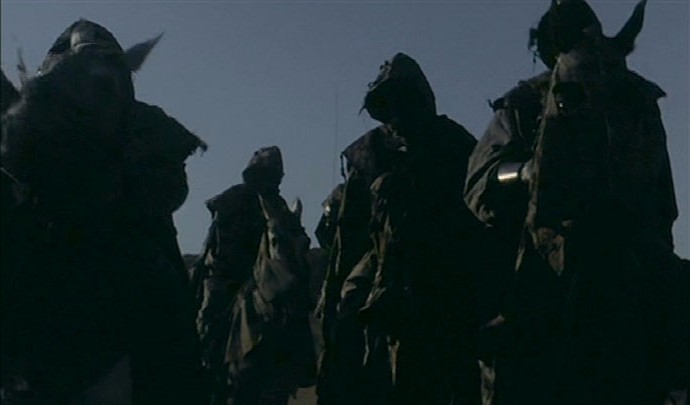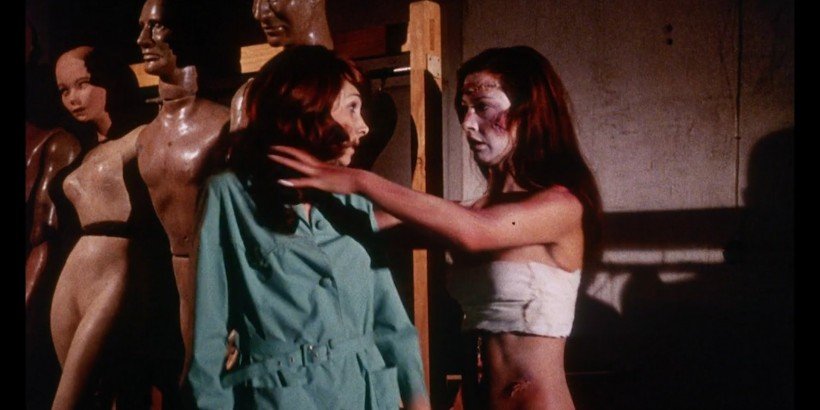
Summer in Montreal is always an exciting time. Downtown, Ste. Catherine Street is cordoned off from traffic beneath de Bleury for the Jazz Festival, where past years featured free outdoor acts such as Stevie Wonder, Allen Toussaint and James Brown. Not far, at the Marriot hotel bar, you can pass by Marc Maron abstaining from alcohol or Bill Burr imbibing. Further down the road, at Concordia University’s Hall Building, is the Fantasia International Film Festival. The Jazz and JFL Festivals have been world-renowned for decades, but obviously Fantasia is a personal favourite, and it’s especially nice that horror, a very specific film fan community, gets a month to showcase some of its finest recent works as well as restorations of lesser-known films and classics.
Fantasia has been virtual for two years, but what they lose with in-person events, they completely compensate for in screenings. This year, Fantasia opened strong with Synapse Film’s restoration of Amando De Ossorio’s Tombs of the Blind Dead for an upcoming Blu Ray release. Ossorio hadn’t made a lot of horror films before 1972, focusing on popular Westerns of the previous decade. After having minor success with a vampire film, he turned his attention to what George Romero had made popular four years previous in the US.

It’s a curious work, full of bizarre 70s sexual politics, ancient satanic templars and a brutally intense atmosphere. At a Lisbon hotel pool, Betty (Lone Fleming) runs into her old college roommate and lover Virginia (Maria Elena Arpon) and her boyfriend Roger (Cesar Burner). After agreeing to go to the country for the weekend, things get awkward when Virginia starts to come on to her, so Betty jumps off a moving train and takes refuge in an old abandoned monastery. The two men running the engine see her, but one cautions his son not to get involved. They know what’s there. After Betty disappears, Roger and Virginia head off to investigate. But Betty has long since been murdered by a satanic clan of the Knights Templar who had somehow found the answer to eternal life.
The restoration restores 15 minutes previously cut from the US release, and it looks fantastic, but those looking for added gore are likely to be disappointed. It’s not a particularly violent film, though when it does occur it’s effective as hell.
Ossorio takes seemingly no inspiration from his American counterparts. The Knights Templar are slow and shambling like Romero’s zombies, and it appears they’re not that hard to escape. However, this is not a zombie film in which the dead are insignificant hordes that serve as a metaphor. They’re a specific horde of dead satanic zealots. Something about handicapping the zombies oddly makes them more menacing. The reason for their blindness – their eyes pecked from their heads by crows after they were executed – is equally hideous. But you don’t quite understand just how intimidating these blind, beanstalk-sized creatures can be until you see them in action, astride their horses, riding a victim down. What they lack in numbers (though there are many more than initially appear), they make up for in brute force; relentless force at that.

Ossorio used their blindness to intensify fear. The zombies hunt by sound, the design of which in the film is effectively manipulated to ratchet up the fear. The clamping feet of horses as the zombies are astride them, increasing heartbeats and rapid breathing; it all becomes intentionally overbearing.
Synapse’s restoration is almost too clean, making day for night shots extremely obvious, but the atmosphere is so overwhelming that Tombs manages to overcome anything that might be considered dated. It works surprisingly well, the day for night only heightens the hypnotic fear the movie often generates. There are other effects that may come off as cheesy, but given that the plot is very much a product of its time, they just fit here.
Tombs of the Blind Dead gets a Just Desserts ending, though it’s surprising just who gets theirs in the last moments. It’s an ending too great to spoil, one that’s both maniacally funny and deeply unsettling. If it’s not a reason to get the Blu Ray, it’s certainly a brilliant offering from a Festival that manages to surprise every year.
The festival runs virtually from Aug. 5 – 25, 2021. Get your tickets here. For more about the festival’s history and founder, check out this excellent Variety piece.
This article was originally written by Kenny Hedges for Grimoire of Horror.
More from Fantasia Film Festival:
The Killing Cell falls into familiar tropes and beats of the found-footage genre. Notably, the plot sees a group of friends/paranormal investigators head to an abandoned facility, only to find… Buffet Libre marks the third feature film from actor/director Zoe Berriatúa, and his first dive into more macabre subject matter. Here, the story follows an older Chinese couple, Xian (Yan… We meet Elena, a “gajin” with a British father and Japanese mother, at her lowest, in a hospital bed after an implied attempt at taking her own life, or self-harm… Sorority Babes in the Slimeball Bowl-O-Rama (also known as The Imp in the UK) is a 1988 American B-movie horror comedy written by Sergi Hasenecz, directed by David DeCoteau, and… After stepping away from filmmaking since 2019’s charming musical comedy Dance with Me, director Shinobu Yaguchi makes his return with Dollhouse (2025), a horror tale centered on a cursed doll,… THE CHILLING FOUND FOOTAGE HORROR FROM CHRIS STUCKMANN AVAILABLE ON DVD, BLU-RAY & DIGITAL FROM 15TH DECEMBER In Shelby Oaks a woman’s desperate search for her long-lost sister falls into… *I feel the need to add to this article the fact that I was engaged as a freelance contributor to the film’s post-production team, specifically responsible for creating the end… Why are horror and exploitation films so popular? Why do fans willingly submit themselves to the gruelling, torturous experiences that these genres provide? The simple answer is it feels good… Nicolas Cage, FKA twigs & Noah Jupe deliver us from evil in ‘Jesus horror’ Altitude will release biblical horror The Carpenter’s Son in UK and Irish cinemas on 21st November. A… Some horror games want to scare you. Look Outside wants to crawl under your skin, settle in, and remind you of just how fragile you are — and it succeeds…